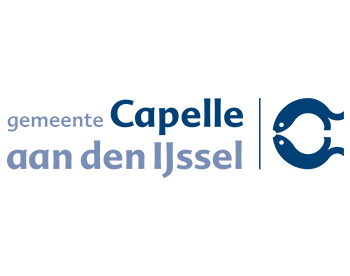Partner
Partner The Municipality of Capelle aan den IJssel
The Municipality of Capelle aan den IJssel administrates roads for line 500, which forms a permanent connection between metro station Kralingse Zoom and the business park Rivium in Capelle using automated, small-scale public transport.
Line 500 has operated automated vehicles since 1999, which the locals call the Parkshuttle. Partly due to the appeal of enlarging the business property, they have conceived a plan to extend the route of this out to the Nieuwe Maas. A transport node will need to be developed there, where the Parkshuttle will be connected to water transport, a park and ride service for the new Feyenoord City that is in development, and a GoBike station with electric shared bicycles. The municipality also wanted to develop additional services at this location, such as a regional control room for (?) and a visitor’s centre for autonomous transport. This plan by the municipality and 2getthere has been accepted in a European tender process via the marketplace for infrastructure of Traffic Enterprise with a financial contribution of 50% for the estimated €8.5 million investment required. This system should be in operation by 2019.
We are currently or potentially collaborating on the following topics:
- Funding: RADD and Capelle are actively working together in the Capture project to get Capelle realised. At the moment, there is not enough in Capelle’s budget and, through active collaboration between Capelle and RADD as well as the joint acquisition of co-funding, the realisation has come just a little bit closer. In the upcoming period, it will be jointly examined how the collaboration can be further developed within Capture.
- Field Lab for practical tests: The course is currently only used on working days. During weekends, there is plenty of space for testing vehicles or interacting with the environment. The current course is also highly suited for conducting research into the driving experiences of the users.
- Legislation and regulations Developing a safety case for the extended route is new and unique and can form the basis for a specific methodology to be developed by SWOV (institute for road safety research) and RDW Through practical tests at the Green Village, an exemption may be acquired more quickly once the test experiences turn out to be positive. An active collaboration between RADD and Capelle in the acquisition of the exemptions will, if necessary, speed up approval.
- Technology: Capelle has built up experience with automated vehicles since 1999. Due to the expansion of the route and the mixture of the other traffic, another dimension has been added to this. Each segment of the route demands customisation. With the development of the WEpods, but also with the current development of the new vehicle in IAT, RADD has the technological knowledge available regarding how vehicles can be adapted to their environment. If this fits into the required customisation applications, Capelle can make us of this technological knowledge regarding such things as vehicle to traffic control communication (VRI and cameras) and vehicle to vehicle communication (smart bicycles and pedestrians).
IN THE MEDIA
- THE GREEN VILLAGE: AN INNOVATIVE TESTING GROUND Published in: Cobouw
- THE NETHERLANDS ‘BEST PREPARED’ FOR AUTONOMOUS CARS, CYCLISTS MAKE ARRIVAL DIFFICULT Published in: NOS
- SENSOR USE WITH AUTONOMOUS VEHICLES Published in: De Volkskrant
- COMEDIAN PIETER JOUKE SEES POSSIBILITIES Published in: delft.nl
- RIJKSOVERHEID.NL: SPEECH BY MINISTER SCHULTZ VAN HAEGEN AT THE OPENING OF THE SMART MOBILITY RESEARCH LAB Published in: Rijksoverheid.nl
NEWS
- VR and Field Study to analyse interaction between pedestrians and autonomous vehicles Published on: Friday 22 February 2019
- Folluw up research car sickness Published on: Wednesday 19 December 2018
- Wanted: Research Opportunity at RADD Published on: Wednesday 07 February 2018
- Bikesim Published on: Monday 23 October 2017
- Opening of Researchlab Automated Driving Delft Published on: Saturday 24 June 2017

